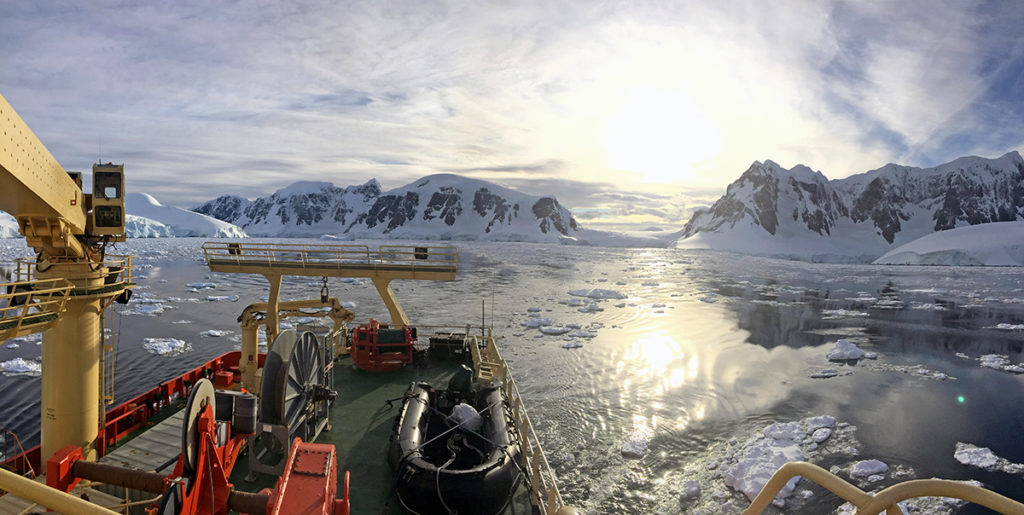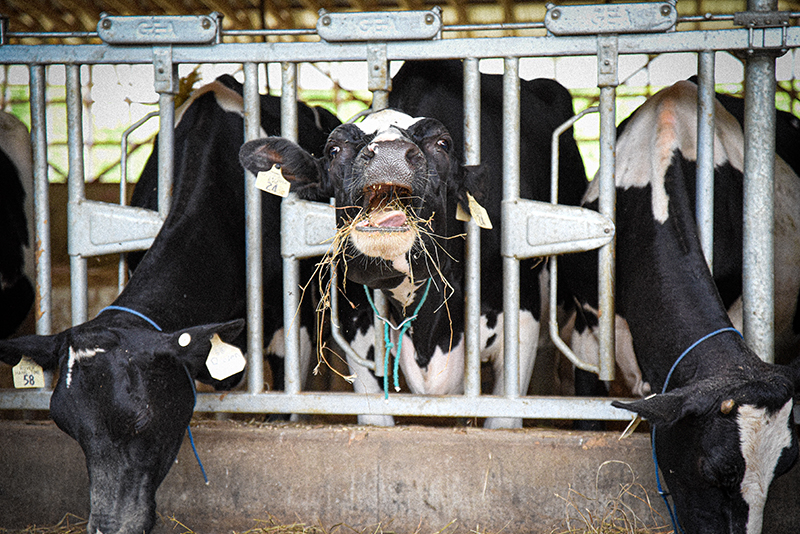Of all the things contributing to climate change, the methane produced from cow burps may not seem like a high priority, but Deborah Bronk, PhD, President and CEO of the Bigelow Laboratory for Ocean Sciences in East Boothbay, would disagree.
“One of the largest sources of methane to the atmosphere are cow burps,” explained Bronk. “Bacteria in the guts of cows convert some of their food to methane and they burp it back out and that is horrible for the climate. Depending on how you calculate it, methane can have up to 84 times the warming potential of CO2.”
Scientists working on project Burp Busters (a joke name that stuck) are doing experiments mixing algae and seaweed to reduce the methane production in the guts of cows. It’s bringing together Bigelow scientists, economists, and even the FDA to try and create a supplement for cows that farmers will buy.
“If we are going to solve climate change, we can’t just understand why it is happening, we have to get solutions into the market at a scale where they have an impact.” – Deborah Bronk, PhD, President and CEO, Bigelow Laboratory for Ocean Sciences
Bigelow Laboratory for Ocean Sciences is a world-class research institute that studies the smallest organisms in the ocean, microscopic plants that power everything happening in the ocean food web. Their scientists work all over the globe, from the Gulf of Maine to Antarctica.

“Earth would be a cold, dead rock if it wasn’t for these microscopic phytoplankton because they produced the first oxygen,” commented Bronk. “Every other breath you take is oxygen from the ocean.”
In order to learn everything they can about these organisms, the research institute deliberately seeks out scientists with different interest areas, placing a mathematician next to someone who studies disease next to someone who looks at phytoplankton.
“We like to bring a lot of different scientists together to look at ocean problems so we don’t all think the same,” said Bronk. “It’s kind of our secret sauce and why we have been able to have such an impact on the field.”
Despite the “disheartening” outlook of the latest UN Climate Report, Bronk is encouraged by more recent bipartisan cooperation on climate change in Washington and plans to invest more heavily in ARPA (Advanced Research Projects Agency) funding, which looks to create transformational change by giving visionary scientists budgets at government agencies to push forward with big ideas. While not all of these projects will work, the ones that do can change the world, according to Bronk.
Bronk sees any opportunity for science to thrive as exciting, even when it’s about cow burps.
“There are a billion cows on the planet,” she explained. “We have real potential of getting something into millions of them that could reduce methane. I am thrilled!”

